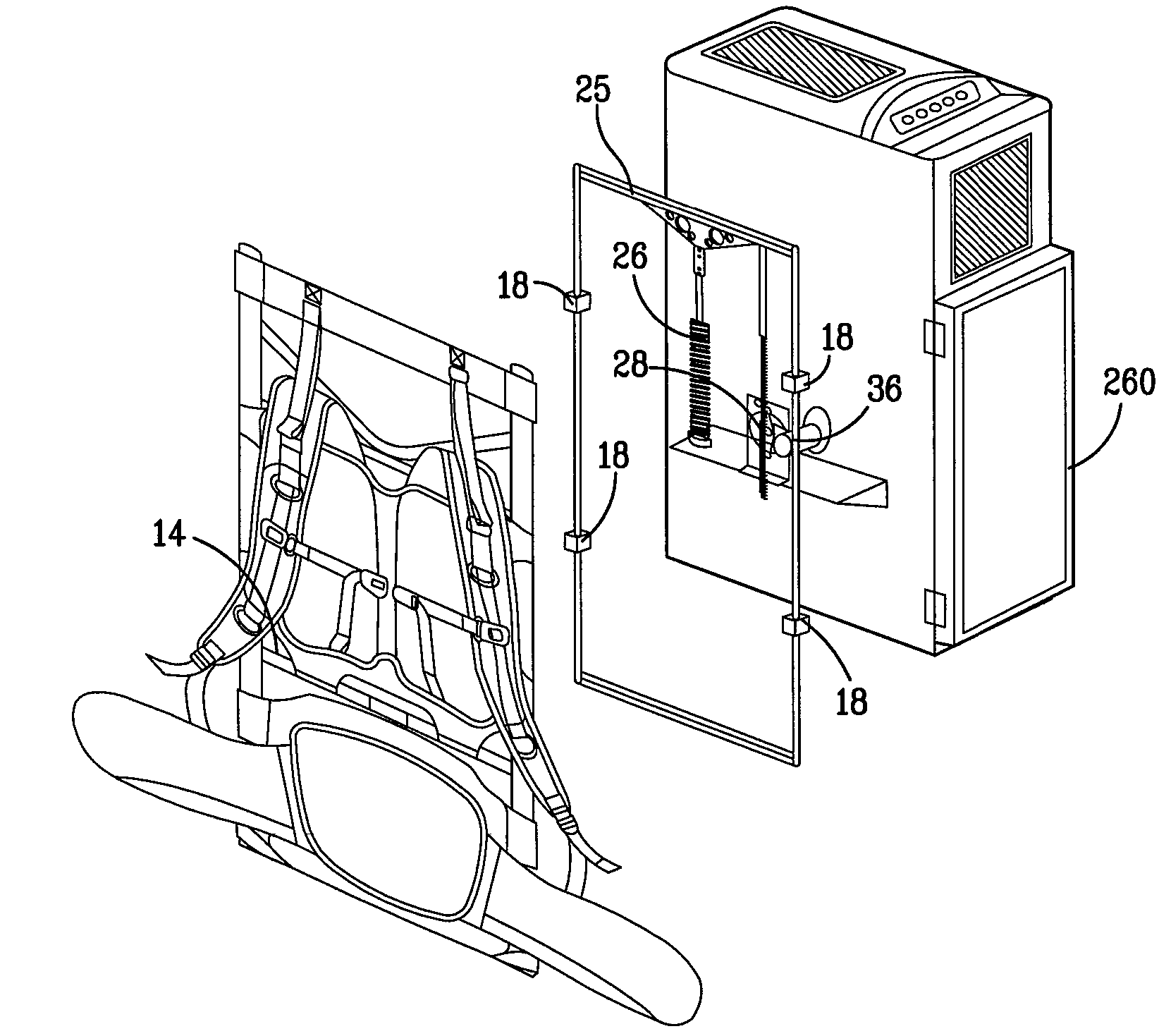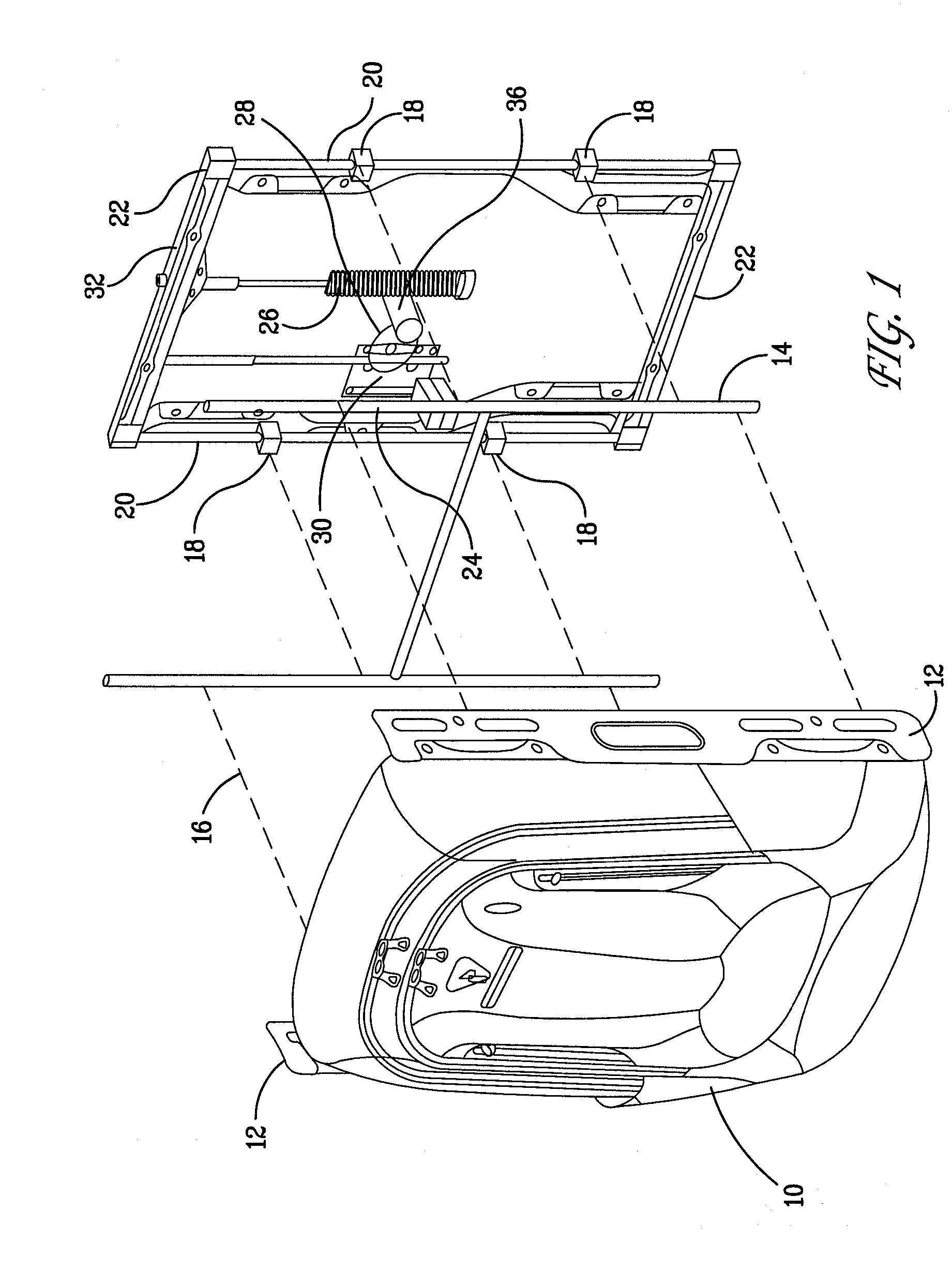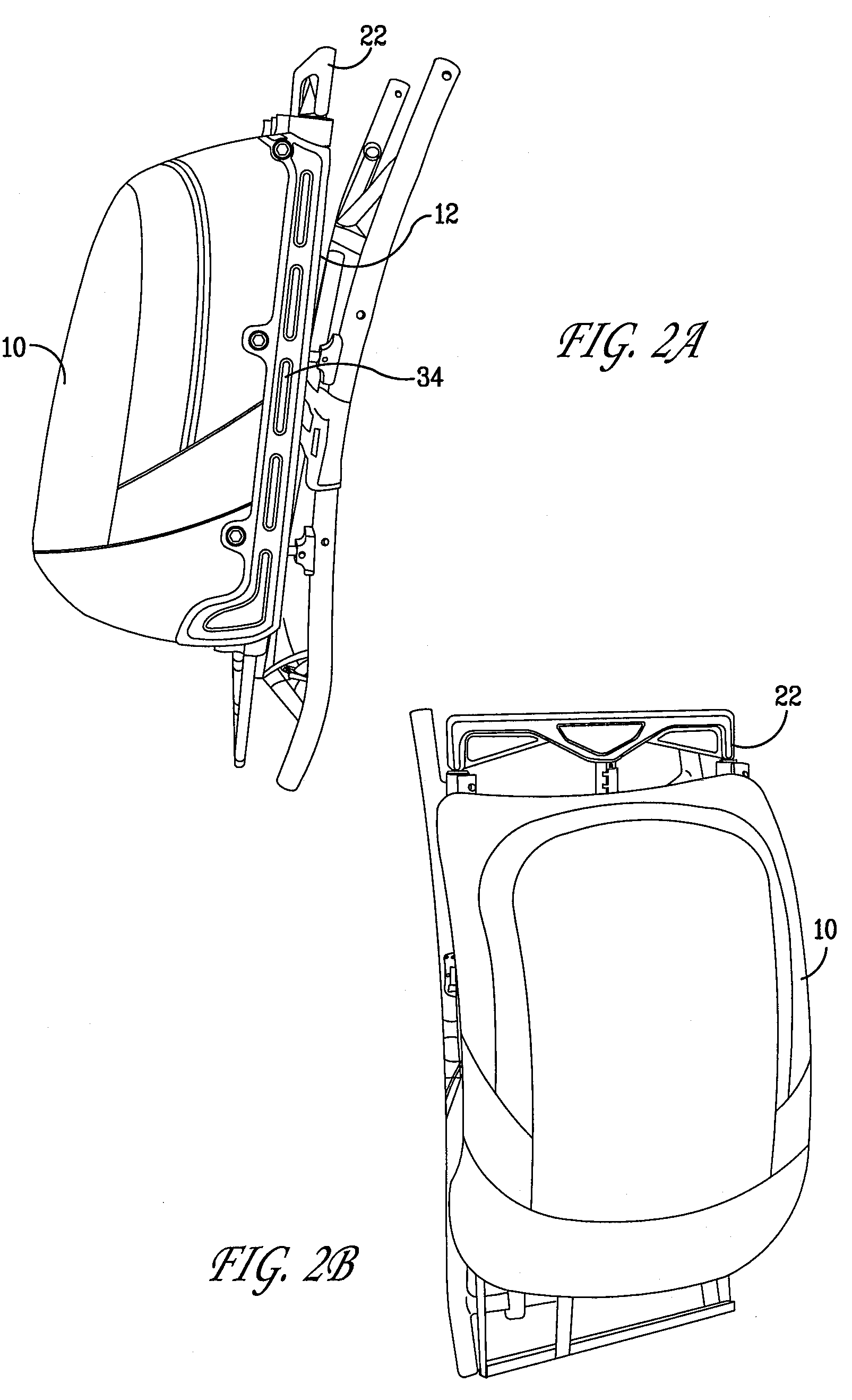Backpack based system for human electricity generation and use when off the electric grid
a technology of energy generation and backpacks, applied in memory systems, program control, mechanical energy handling, etc., can solve problems such as overdamping the movement of load, affecting the power generation efficiency of people, so as to improve electricity generation, reduce noise, and reduce weight
- Summary
- Abstract
- Description
- Claims
- Application Information
AI Technical Summary
Benefits of technology
Problems solved by technology
Method used
Image
Examples
first embodiment
[0065]As illustrated in FIG. 5, power electronic circuit 40 is provided in accordance with a first embodiment to extract energy from the backpack AC generator 36 and to use this energy to both charge a lithium-technology battery pack 42 and to provide power to an electronic load 44. In an exemplary embodiment, the AC generator 36 may be a brushless AC generator with input spur gear, guide rollers for a rack, speed increasing gears, slotless brushless 3-phase windings with rare earth magnets and output circuit board with Schottky diodes to convert the 3-phase AC output of the winding to DC with approximately 98% efficiency. The AC generator 36 is preferably light in weight, preferably less than 0.5 pounds.
[0066]The output of the brushless AC generator 36 is rectified through a full-bridge diode rectifier circuit 46. Should the output voltage of the rectifier circuit 46 attempt to exceed a preset value, a variable resistive load 48 is enabled which limits the voltage to this value. Th...
second embodiment
[0115]In a second embodiment, one can use the stronger leg muscles to achieve the same result by having the backpack lay horizontally with its frame down and sitting with his / her feet against the pack body. The load could then be pushed by the feet in a rhythmic way so as to generate electricity. Of course, the frame must be prevented from moving, which can be achieved by lodging it against a tree, using tent stakes, or using a harness 112 and foot pads 113 that accommodate the bottom and feet of the user to keep the frame from moving away (FIG. 12(b) as the foot pads are pushed by the user's feet. Using this latter approach, it is possible to obtain a similar amount of power as one obtains during walking.
[0116]If a larger level of power is needed, then the linear motion of the legs can be converted to rotary motion of the generator by attaching a lightweight bicycle ergometer 110 to the frame of the backpack as illustrated in FIG. 12(a)). The pedals of the ergometer 110 permit the ...
PUM
 Login to View More
Login to View More Abstract
Description
Claims
Application Information
 Login to View More
Login to View More - R&D
- Intellectual Property
- Life Sciences
- Materials
- Tech Scout
- Unparalleled Data Quality
- Higher Quality Content
- 60% Fewer Hallucinations
Browse by: Latest US Patents, China's latest patents, Technical Efficacy Thesaurus, Application Domain, Technology Topic, Popular Technical Reports.
© 2025 PatSnap. All rights reserved.Legal|Privacy policy|Modern Slavery Act Transparency Statement|Sitemap|About US| Contact US: help@patsnap.com



